December 10, 2024
Tzu Chi donates plastic caps for DOST-PNRI’s water reclamation project
By Dorothy Castro
On December 2, Tzu Chi volunteers embarked on a learning journey at the Department of Science and Technology-Philippine Nuclear Research Institute (DOST-PNRI) for the project titled “Irradiated Aquablocks Biofilm Carriers,” which seeks to reclaim used water with the help of plastic bottle caps and rings.
Water is used in many day-to-day activities, be it for hygiene, food preparation, and watering plants. As the population grows, the demand for water increases, and communities begin to lack access to this valuable resource, as described by the United Nations.
Tzu Chi has been taking the necessary steps to conserve this scarce resource. In the Tzu Chi Palo Great Love Village, homeowners use rain chains to collect water for cleaning and watering plants. Apart from this, Tzu Chi continues to fulfill its mission of environmental protection through many sustainable practices, including its recycling facility.
Chemical engineer Paolo Lazarte’s first encounter with the Tzu Chi Foundation when he was in college would lead him years later to acquire plastics for his project on water reclamation. It’s a project he is working on with fellow researcher-engineers, Maegan Alcaraz and Ace Angeles.
As the project lead for this study, Lazarte understood the need for alternative ways to conserve water. “Since we cannot avoid using water, somehow, of course, we try to find ways to make them useful again for us," he says.
Plastic bottles are usually sought after for recycling. Now, plastic caps and rings have a crucial purpose for this study.
Representatives of the DOST-PNRI, who received 20 kilograms of plastic bottle caps and rings from Tzu Chi volunteers last May, are using the discarded plastics for their research on biofilm. Biofilm is a form of bacteria that clings together and eats away at pollutants in used water.
For Tzu Chi volunteer Woon Ng, this was an enriching learning experience. In the many environmental programs of Tzu Chi, Ng has always been passionate about imparting knowledge of sustainable practices to many people, especially the youth. Through hands-on experience, young minds can better appreciate Tzu Chi’s projects such as recycling, upcycling, and even creating organic eco-enzyme cleaning solutions.
Despite the creation of these programs, Ng believes there is more progress to be accomplished, moving forward. “Having proper data is one step to understanding [environmental research better],” she explains, acknowledging that while they are compassionate towards the environment, there is a need to understand the science and technology that could create a brighter future for communities.
For Tzu Chi Partnerships Officer Clifford Co, this is the importance of connecting organizations who share a passion for the environment. With their new discoveries, they can further help the country.
In its experimental stage, the study is starting to show positive outcomes in reclaiming used water. For Co, these positive results have the potential to address the growing problems of water scarcity. “While this is currently on a small scale, I look forward to seeing the success of this study not only for DOST-PNRI but also for the nation,” Co says.
Through its continued support and partnership, Tzu Chi aims to spread awareness and spark action to protect the environment and its valuable resources.
“We are working together to make this [project] a reality,” says Lazarte.
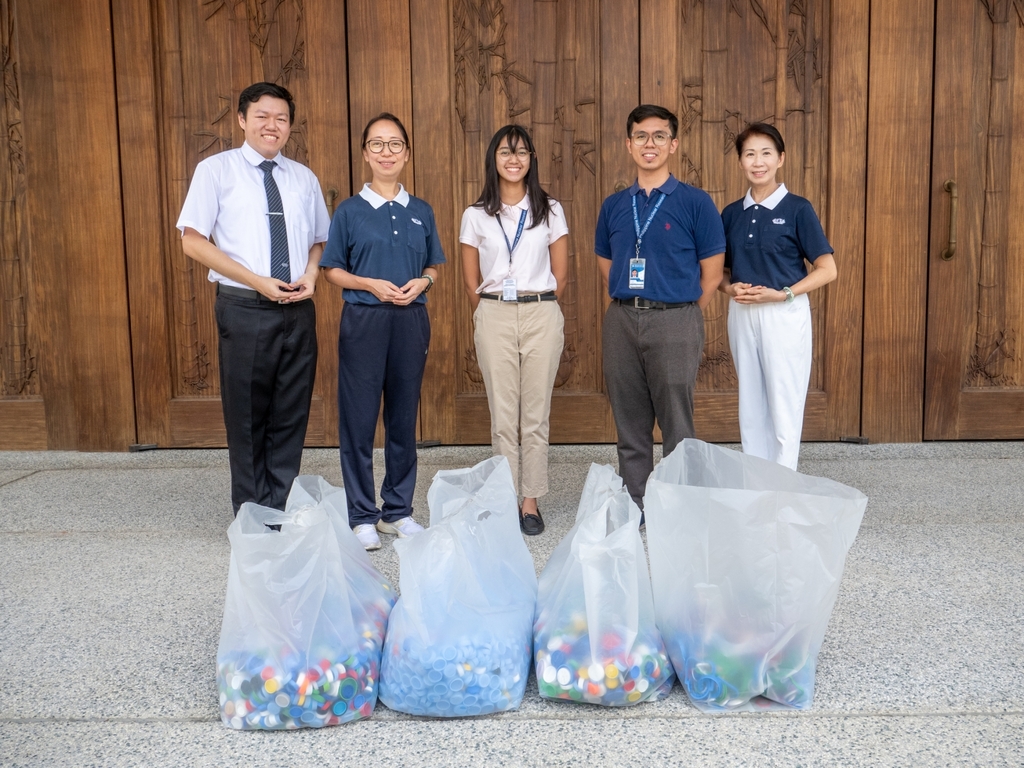 Last May, Tzu Chi volunteers turned over 20 kilograms of plastic bottle rings and caps to representatives of DOST-PNRI.
Last May, Tzu Chi volunteers turned over 20 kilograms of plastic bottle rings and caps to representatives of DOST-PNRI.
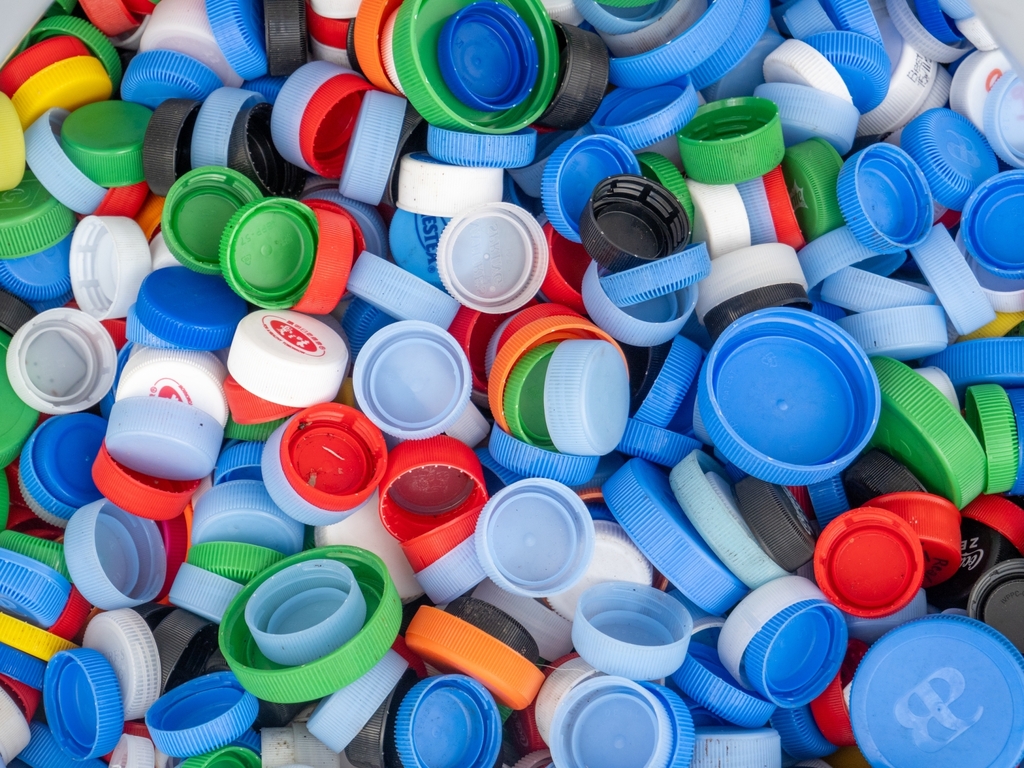 While these discarded plastic bottle caps may seem of no use, the DOST-PNRI is finding ways to make them a valuable resource in reclaiming used water.
While these discarded plastic bottle caps may seem of no use, the DOST-PNRI is finding ways to make them a valuable resource in reclaiming used water.
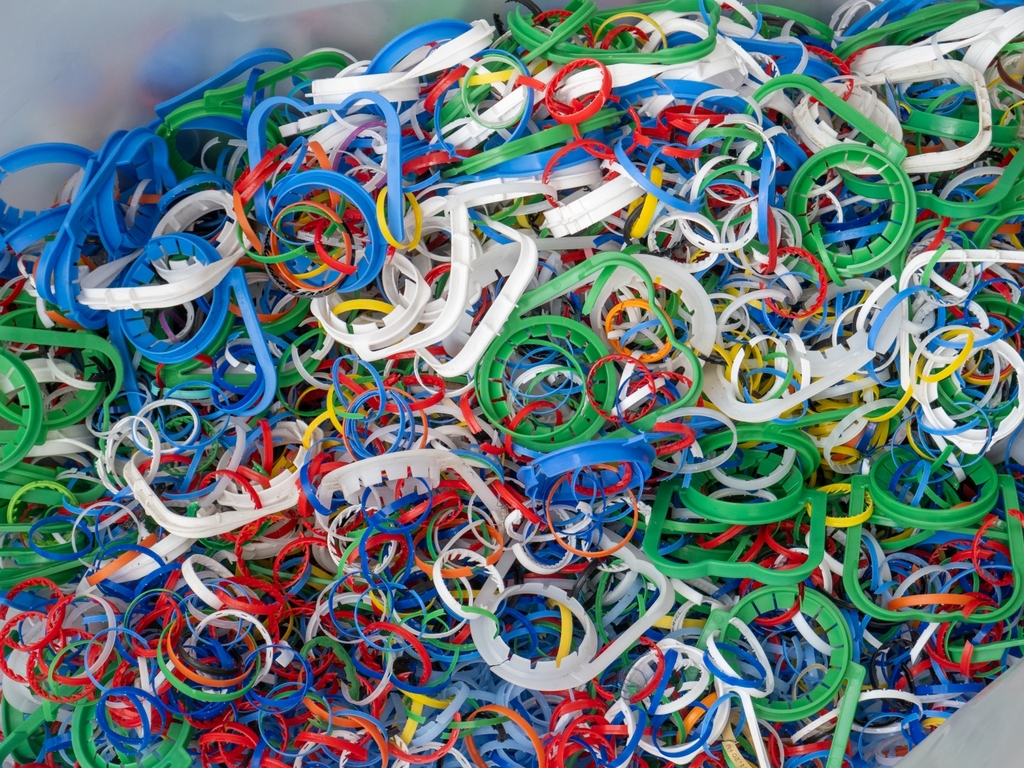 Plastic bottle rings, when bundled together, can be used to house biofilm, a microorganism that can cling onto corrugated or rough surfaces of plastic, as they eat away at the pollutants we find in wastewater. Once free of pollutants, the water can be useful for watering plants and cleaning.
Plastic bottle rings, when bundled together, can be used to house biofilm, a microorganism that can cling onto corrugated or rough surfaces of plastic, as they eat away at the pollutants we find in wastewater. Once free of pollutants, the water can be useful for watering plants and cleaning.
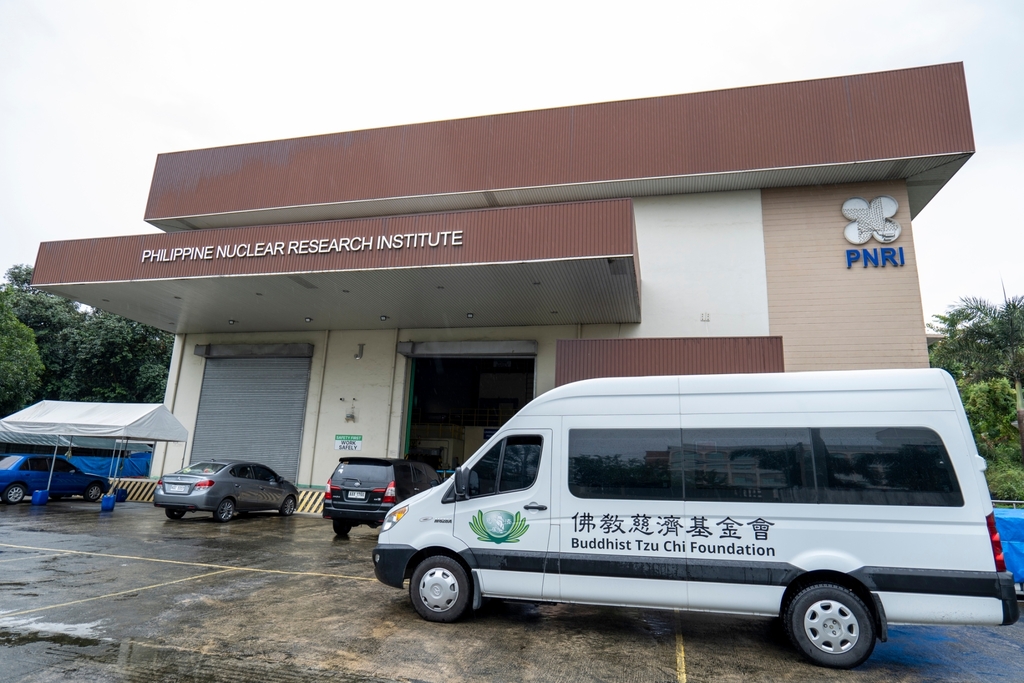 On December 2, Tzu Chi visited DOST-PNRI’s Electron Beam Irradiation Facility (EBIF) in Quezon City, to learn about the use of plastic bottle caps for reclaiming used water, as well as the irradiation process in the facility.
On December 2, Tzu Chi visited DOST-PNRI’s Electron Beam Irradiation Facility (EBIF) in Quezon City, to learn about the use of plastic bottle caps for reclaiming used water, as well as the irradiation process in the facility.
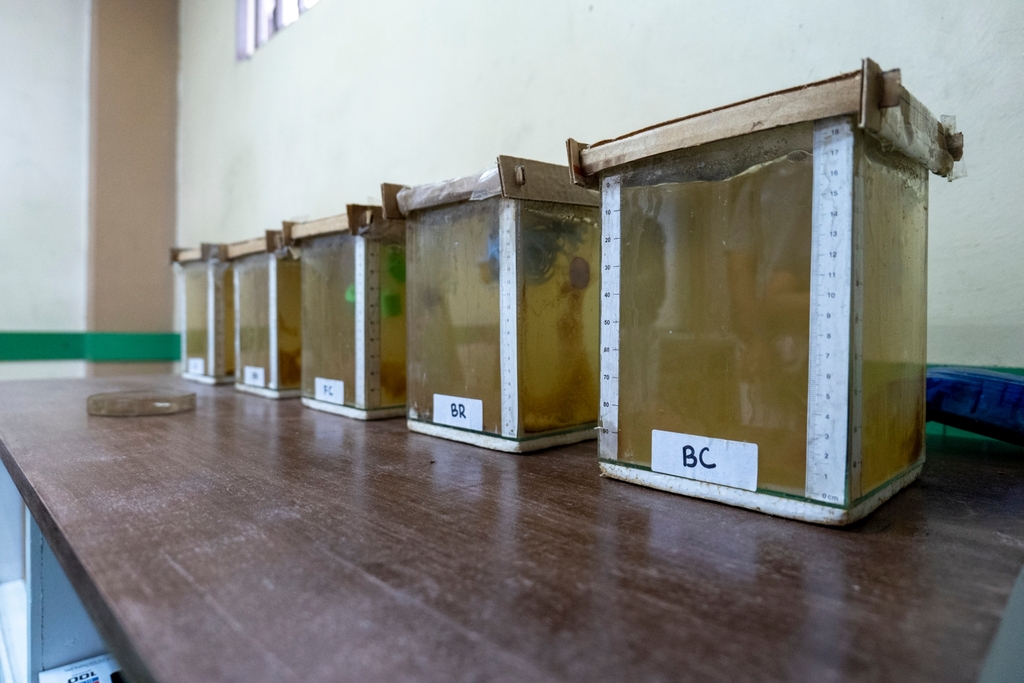 At DOST-PNRI’s Electron Beam Irradiation Facility (EBIF), chemical engineers Paolo Lazarte, Maegan Alcaraz, and Ace Angeles study the use of plastics in reclaiming used water, in the project titled “Irradiated Aquablocks Biofilm Carriers.”
At DOST-PNRI’s Electron Beam Irradiation Facility (EBIF), chemical engineers Paolo Lazarte, Maegan Alcaraz, and Ace Angeles study the use of plastics in reclaiming used water, in the project titled “Irradiated Aquablocks Biofilm Carriers.”
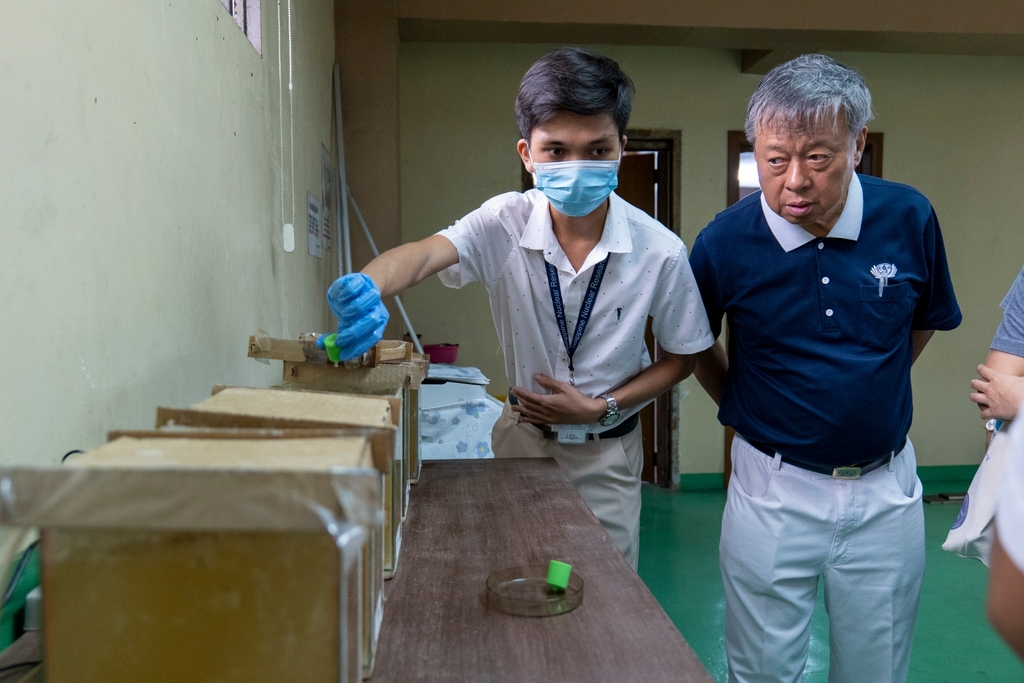 Chemical engineer Ace Angeles (left) shows Tzu Chi volunteer Johnny Kwok the plastic caps that serve as biofilm carriers.
Chemical engineer Ace Angeles (left) shows Tzu Chi volunteer Johnny Kwok the plastic caps that serve as biofilm carriers.
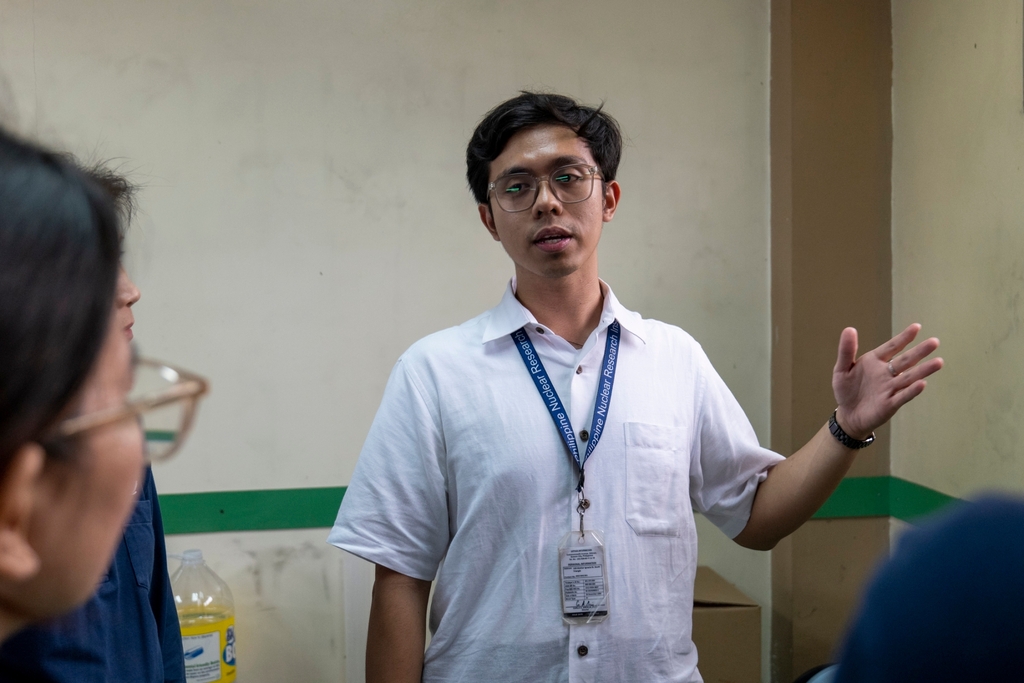 S&T Fellow and project leader Engr. Paolo Lazarte explains the goals of their “Irradiated Aquablocks Biofilm Carriers” project, which seeks to reclaim used water so that it may have a new purpose to communities.
S&T Fellow and project leader Engr. Paolo Lazarte explains the goals of their “Irradiated Aquablocks Biofilm Carriers” project, which seeks to reclaim used water so that it may have a new purpose to communities.
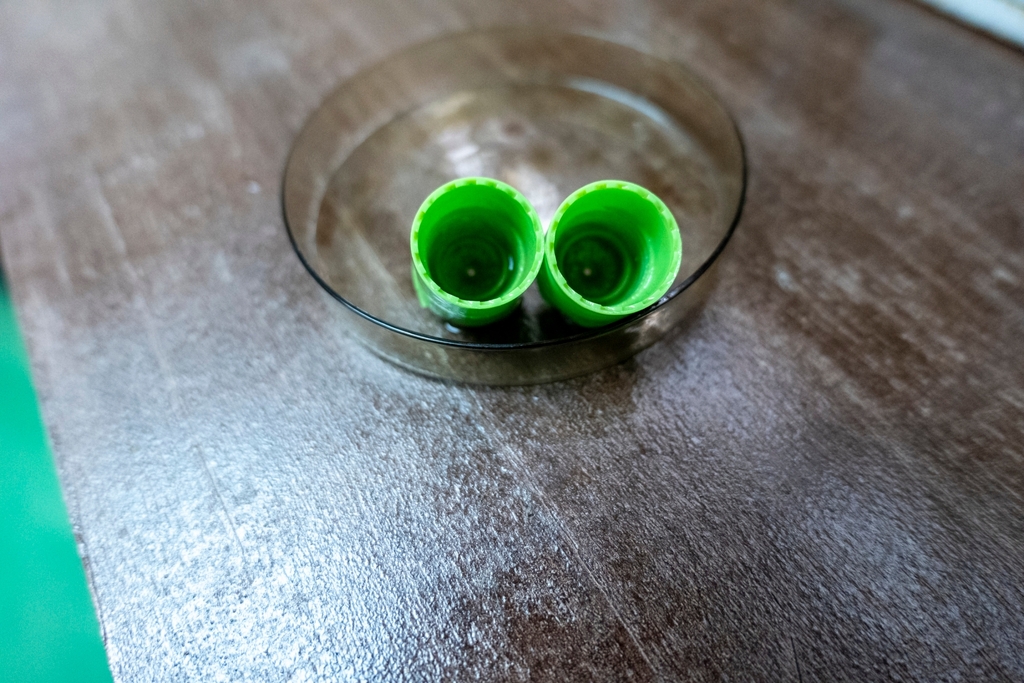 These plastic bottle caps gain another life as they are used to remove pollutants from wastewater, its corrugated texture being beneficial for biofilms to cling onto.
These plastic bottle caps gain another life as they are used to remove pollutants from wastewater, its corrugated texture being beneficial for biofilms to cling onto.
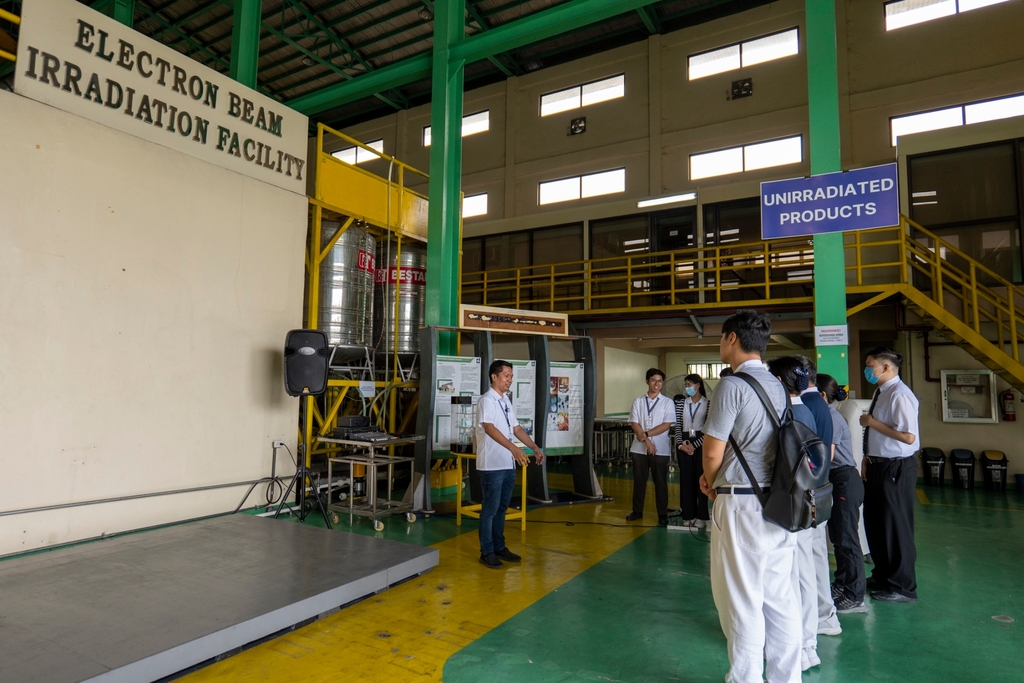 Tzu Chi volunteers and staff are welcomed at the DOST-PNRI Electron Beam Irradiation Facility.
Tzu Chi volunteers and staff are welcomed at the DOST-PNRI Electron Beam Irradiation Facility.
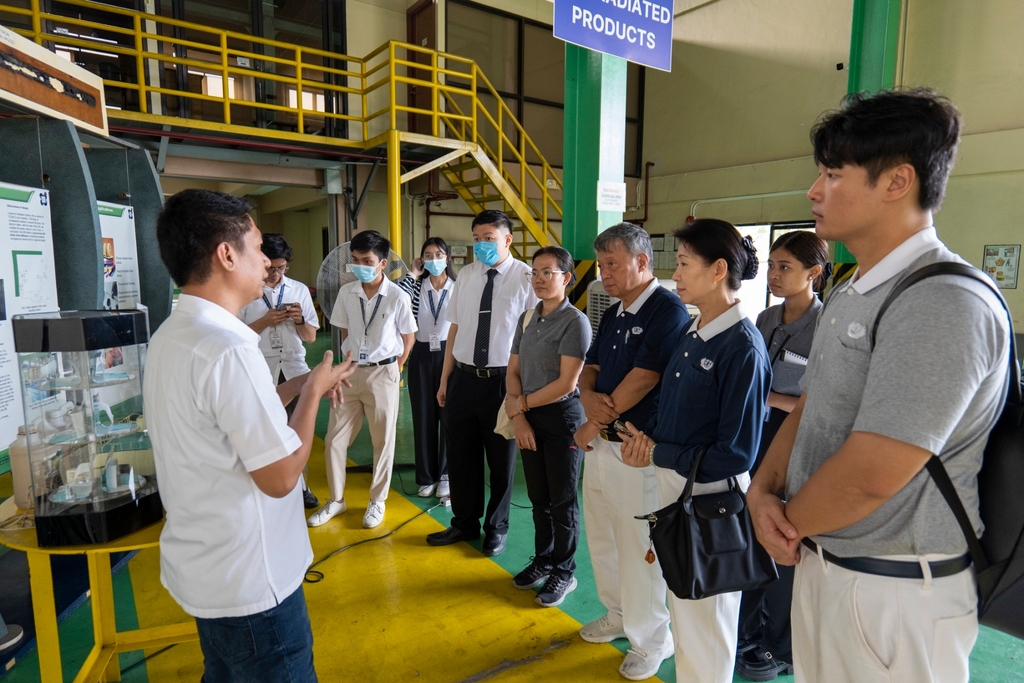 Second from left: Chemical engineer Ace Angeles, Tzu Chi Partnerships Officer Clifford Co, Tzu Chi Program Officer Lineth Brondial, along with Tzu Chi volunteers Johnny Kwok, Woon Ng, and David Weng listen to the explanation of how Irradiation works at the DOST-PNRI Electron Beam Irradiation Facility (EBIF).
Second from left: Chemical engineer Ace Angeles, Tzu Chi Partnerships Officer Clifford Co, Tzu Chi Program Officer Lineth Brondial, along with Tzu Chi volunteers Johnny Kwok, Woon Ng, and David Weng listen to the explanation of how Irradiation works at the DOST-PNRI Electron Beam Irradiation Facility (EBIF).
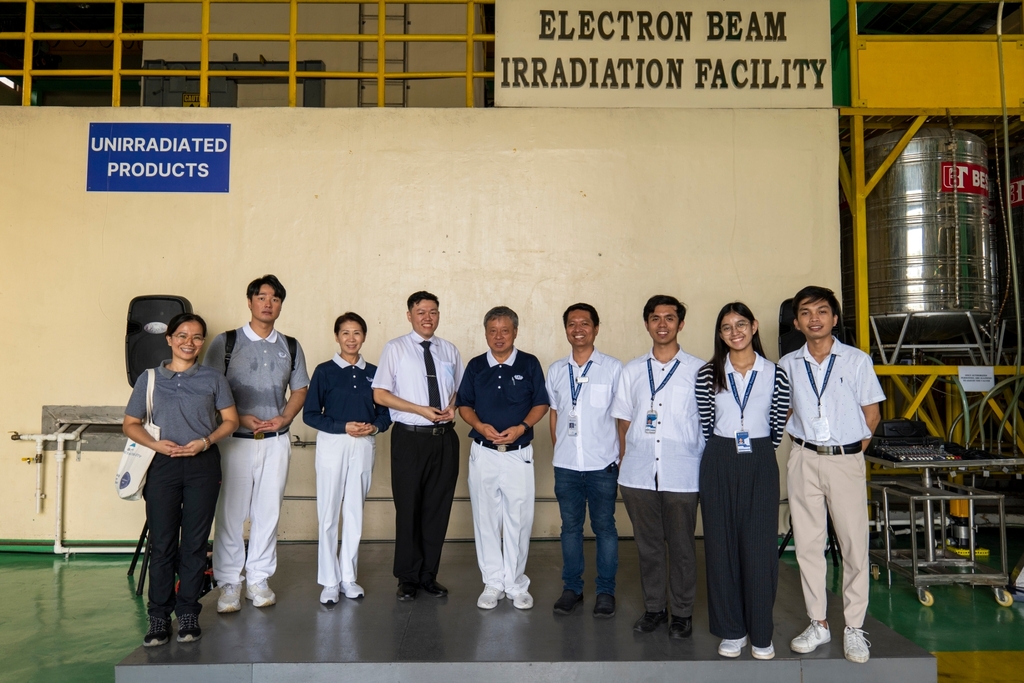 Tzu Chi volunteers, staff and DOST-PNRI staff pose together for a photo after a walkthrough of the facility.
Tzu Chi volunteers, staff and DOST-PNRI staff pose together for a photo after a walkthrough of the facility.





